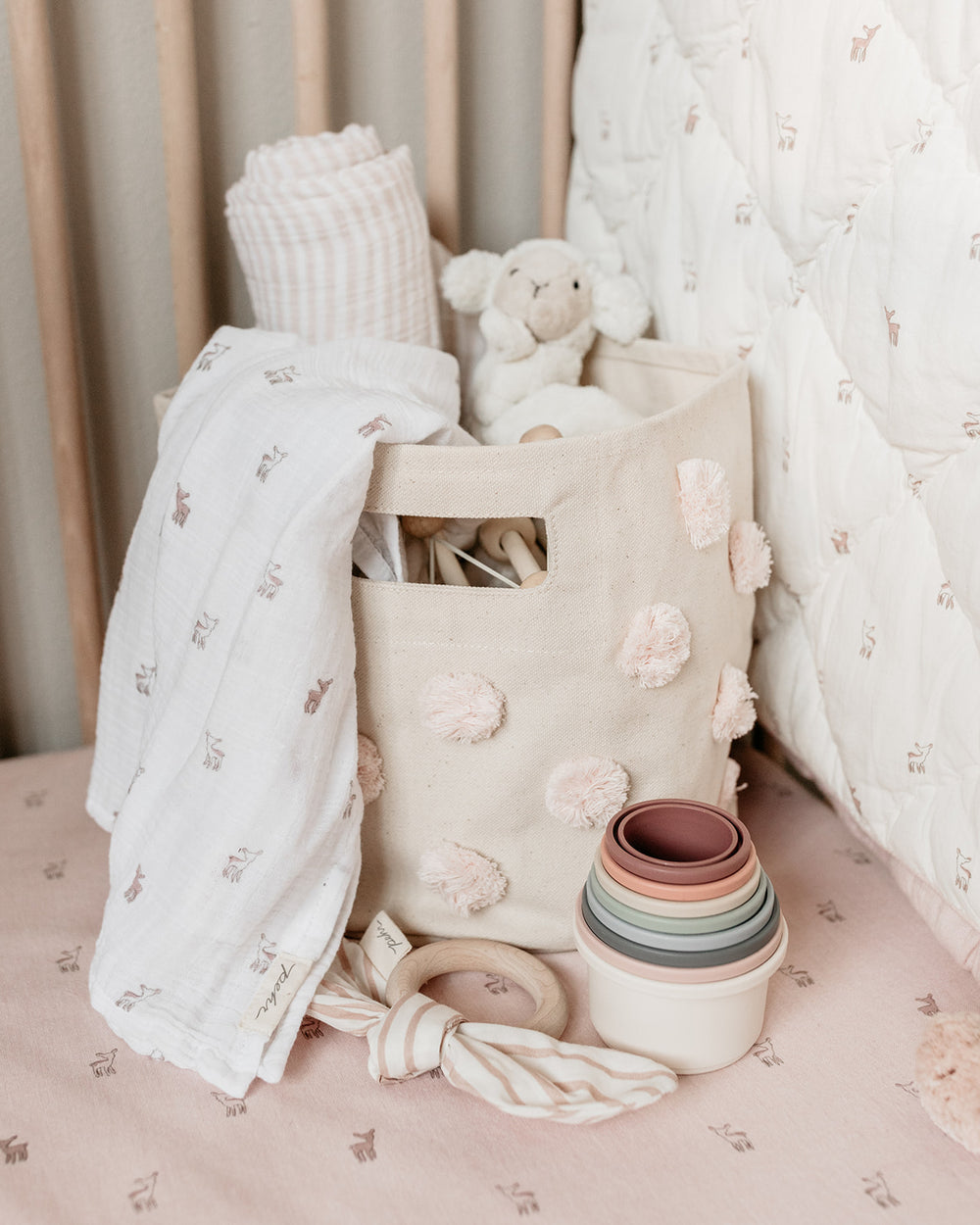Every Wink Counts: 5 Ways to Beat Pregnancy Insomnia
It’s no secret that sleep during pregnancy can feel less than perfect. Between a baby bump and other growing pains, many pregnant women find themselves unable to get the shut eye they need. Whether you’re in the first trimester or your due date is just around the corner, don’t let pregnancy insomnia keep you up at night. Read on for our top 5 ways to get the best pregnancy sleep possible.
Why is sleeping pregnant so hard?
You may have heard more than a few myths surrounding pregnancy sleep. Does pregnancy insomnia mean you’re having a girl? Is the wakefulness common in the late stages of pregnancy just prepping you for the sleepless nights ahead with a newborn? The irony is just when you feel the most exhausted and need rest more than ever, you may find yourself counting sheep instead of getting a deep sleep.
With your body working overtime to grow a baby, there’s a lot of physical ailments that can keep you tossing and turning at night. It could be the typical hormonal shifts, common pregnancy ailments like restless leg syndrome and round ligament pain coupled with a growing belly that makes it hard to find a comfortable position for dozing off. On top of that, a full bladder may have you making several trips to the bathroom overnight.
5 Ways to Get the Best Pregnancy Sleep Possible
As you prepare for the night wakings that come hand in hand with a new baby, it’s important to get the best rest you can during pregnancy. To prevent pregnancy insomnia, create a routine for yourself that focuses on better sleep hygiene, reducing stress, and transforming your bedroom into a sleep sanctuary.
Read on for our top 5 ways to improve pregnancy sleep:
- Avoid drinking water, caffeinated drinks and eating too close to bedtime. Your bladder isn’t what it once was. One way to beat pregnancy insomnia is to focus on preventing night wakings caused by a full bladder (once you’re up and about, it can be harder to settle back into sleep). Working with a pelvic floor physiotherapist during pregnancy can help with incontinence and reducing the urge to pee frequently overnight. Eating dinner earlier and avoiding spicy and acidic foods prevents heartburn from causing pregnancy insomnia.
- Manage stress. You probably have a lot on your mind as you prepare for baby, but there are things you can do to encourage your mind to welcome rest at the end of the day. When you’re in nesting mode, manage pregnancy insomnia and anxiety by getting all the nursery must-haves you need ahead of time (crib sheets, swaddles, a mobile, and sleep bags in different TOG ratings). Try a prenatal yoga class, meditation, or therapy to manage your mental load. Regular exercise approved by a healthcare provider (walking, swimming and movement that isn’t too rigorous), acupuncture and massage are all great ways to prevent pregnancy insomnia related to anxiety and stress.
- Put electronics to bed before you go to sleep. Give yourself a window of 1-2 hours before bedtime where you aren’t exposed to the blue light of electronics (put your phone on night mode and dim the brightness if you need to use it). A sound machine for white, pink or brown noise can also help you reach restorative REM sleep while blackout blinds help promote a longer sleep cycle even if the sun is already up. You’ll probably need both these tools once you’re coaxing your little one to sleep!
- Write it down. Journaling, to-do lists and writing out whatever’s on your mind gives your thoughts less power. Writing things down allows you to let go and settle into a mental space ripe for pregnancy sleep. Think of ideas during the day for how to set up a nursery so you feel organized and don’t have a lot of cluttered thoughts keeping you up at night with pregnancy insomnia. If your due date is nearing, make sure your hospital bag checklist is complete so there’s one less thing to worry about. Putting things out of your head can help promote a peaceful mind and better overnight sleep.
- Get as cozy as you can. Create a sleep routine that will help improve the quality and length of your rest. Choose comfy pajamas ideal for the room temperature and season (same goes for sheets, duvet and blankets). Take a soothing bath with essential oils to promote relaxation and winding down. A pregnancy pillow or wedge pillow between your legs can make a big difference too (most experts recommend sleeping on your left side with your knees bent to allow blood flow to the placenta and prevent swelling in your legs).
Takeaways
If you’re chasing sweet dreams instead of getting good quality pregnancy sleep, you definitely aren’t alone. Though pregnancy insomnia can come and go in waves, most women experience sleep disturbances at some point during these nine months. We hope these tips empower you to make changes that will (hopefully) have you sleeping like a rock!
Frequently Asked Questions
Poor sleep affects a developing fetus since insufficient sleep totals or a lack of deep sleep can reduce the amount of growth hormone that is released. Pregnancy insomnia can lead to maternal health complications such as hypertension and gestational diabetes, in extreme cases. The majority of pregnant women experience sleep disturbances, but if you have any concerns you should always consult with your healthcare practitioner.
Most physicians recommend sleeping on your left side while pregnant. Some studies have shown back and right-side sleeping positions were linked to reduced fetal growth, low birth weight and preeclampsia. Lying on your back or right side during the second and third trimesters may compress the major blood vessel that delivers blood to your uterus.
Pregnancy insomnia usually occurs during the first and third trimesters because of changes in body weight, hormone levels and increased stress. Most women wake 3-5 times a night during the third trimester because of back pain, strange dreams, a full bladder, heartburn, fetal movement, and anxiety around labor and delivery.












